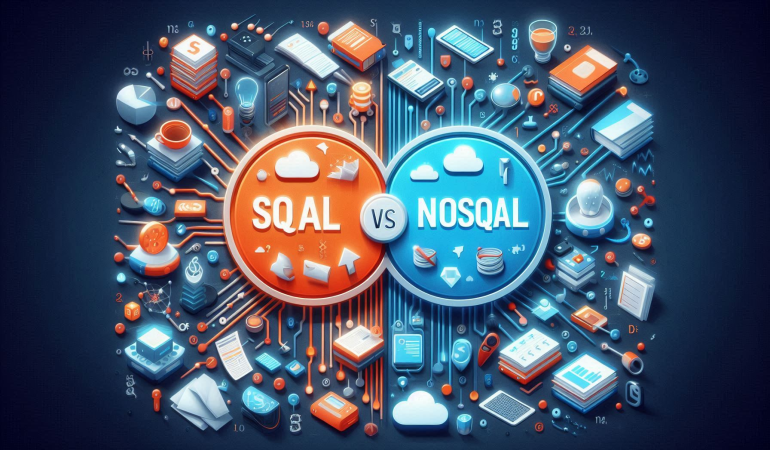
SQL vs NoSQL: Understanding the Key Differences
Sep 29, 2024
In today's fast-paced digital world, data is king! With so much information to manage, choosing the right database is crucial. Two of the most common types of databases are SQL and NoSQL. But what’s the difference, and which one should you choose? Let’s break it down in simple terms.
What is SQL?
SQL stands for Structured Query Language. It’s a standard language used to manage and manipulate data in relational databases like MySQL, PostgreSQL, and Oracle. In SQL databases, data is stored in tables with rows and columns, much like a spreadsheet. The structure is rigid, meaning the data needs to follow a defined schema.
Key Features of SQL Databases:
- Structured Data: Everything follows a clear, predefined format.
- ACID Compliance: Ensures transactions are reliable, with strict rules on data consistency.
- Good for Complex Queries: Ideal when you need to run complex searches and transactions.
What is NoSQL?
NoSQL, which stands for Not Only SQL, is a flexible alternative designed to handle large volumes of unstructured or semi-structured data. Popular NoSQL databases include MongoDB, Cassandra, and Redis. Unlike SQL, NoSQL databases don’t require a fixed schema, and data can be stored in a variety of formats like key-value pairs, documents, or graphs.
Key Features of NoSQL Databases:
- Flexibility: No fixed schema means you can store any type of data.
- Scalability: Easily handles large volumes of data, making it perfect for big data and real-time applications.
- Faster for Certain Tasks: Great for rapid development and less complex queries.
Key Differences Between SQL and NoSQL
| Feature | SQL | NoSQL |
|---|---|---|
| Structure | Predefined schema (tables) | Flexible schema (documents, etc.) |
| Data Type | Structured | Unstructured/Semi-structured |
| Scalability | Vertical (add more power to servers) | Horizontal (add more servers) |
| Use Case | Complex queries, transactions | Big data, real-time apps, fast scaling |
| Examples | MySQL, PostgreSQL, Oracle | MongoDB, Cassandra, Redis |
When to Choose SQL:
- Your data is structured, and you know its format from the start.
- You need strong consistency, reliability, and support for complex queries (e.g., banking systems).
- You're working on a project that requires a lot of table relationships.
When to Choose NoSQL:
- Your data structure is flexible, or changes frequently.
- You're building large-scale applications like social networks, real-time analytics, or content management systems.
- You need fast, scalable solutions with high volumes of data.
Conclusion
Both SQL and NoSQL have their strengths, and the choice depends on your project’s needs. If you need structured, reliable data management, go with SQL. But if you’re working with big data or require a flexible, scalable solution, NoSQL might be the better option.
By understanding the key differences, you’ll be in a better position to choose the right database for your next project!
For more detailed guidance and in-depth training, visit our training here.

